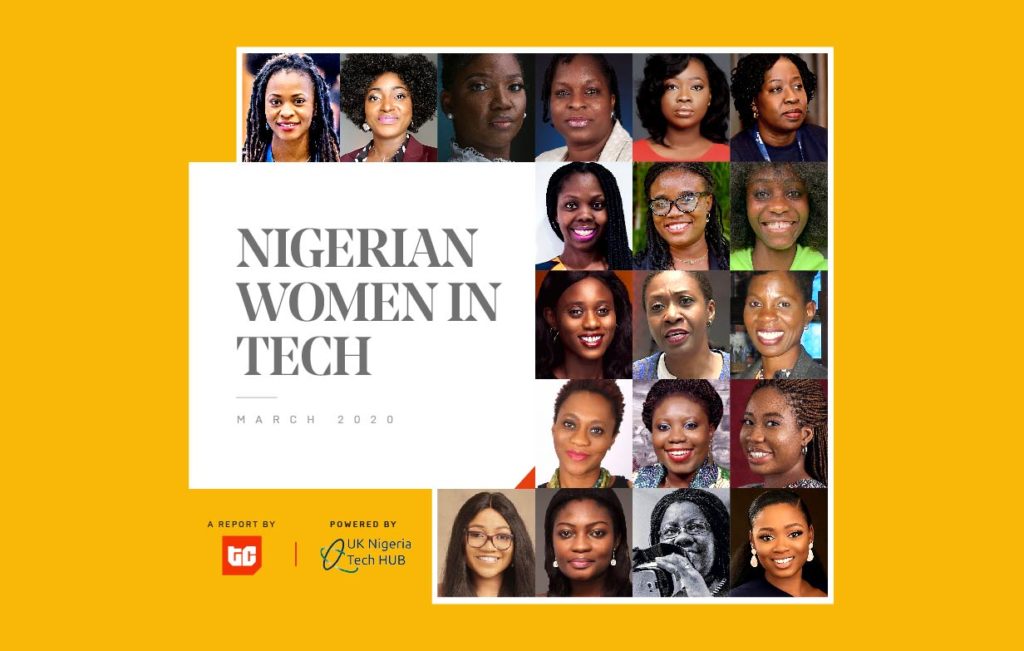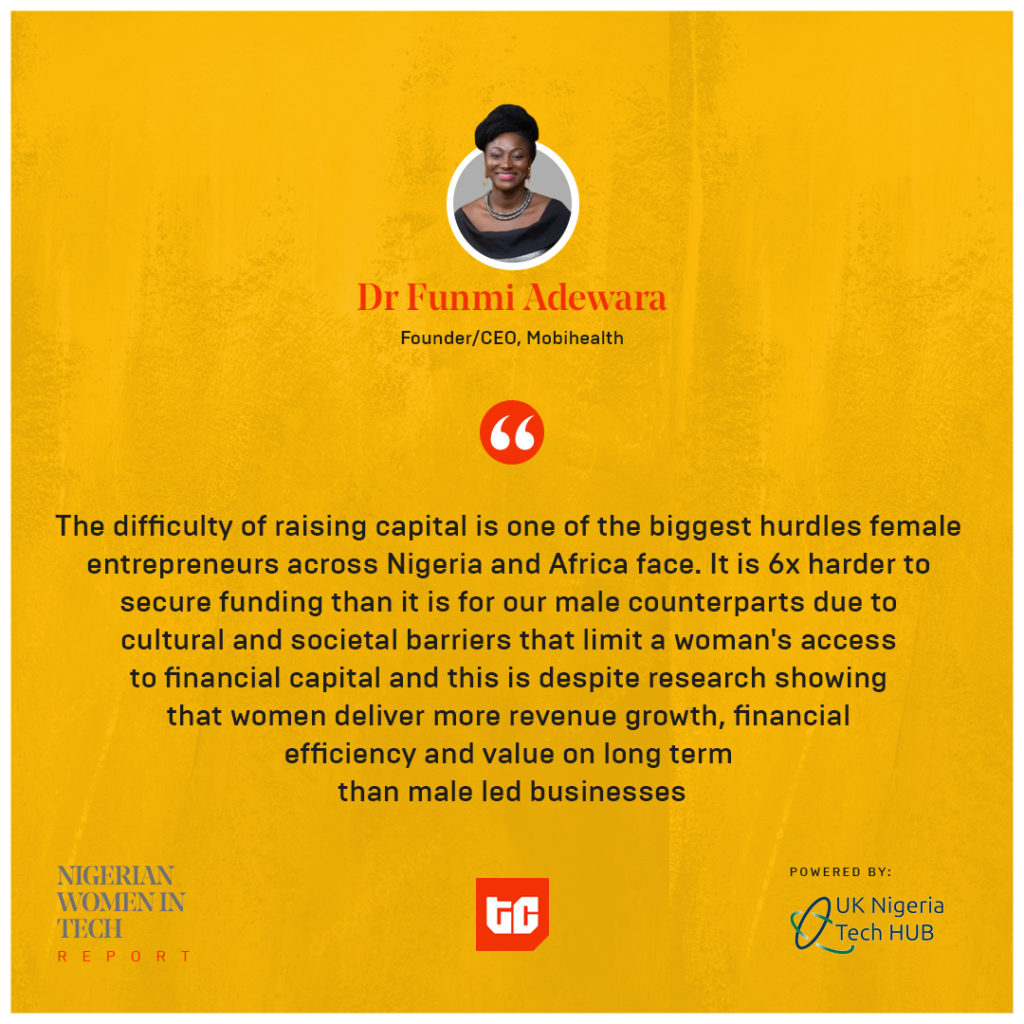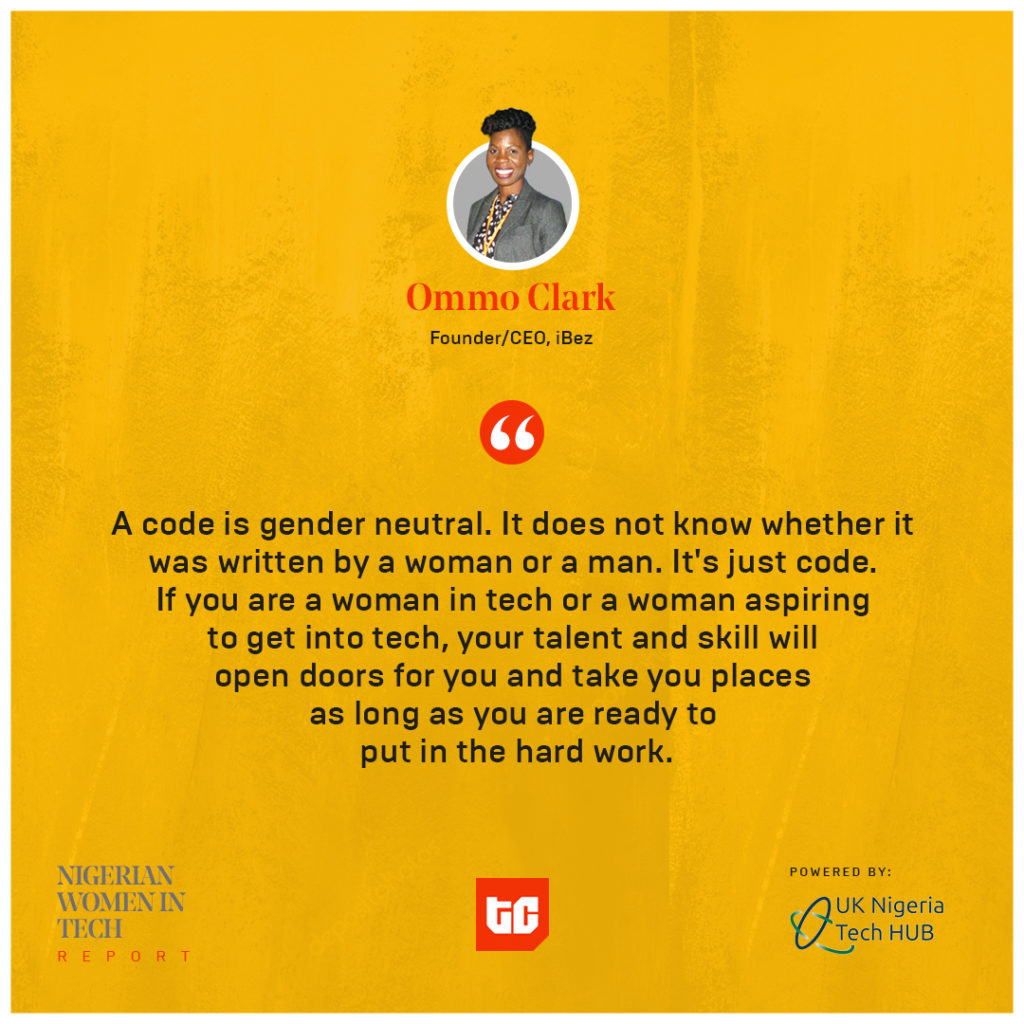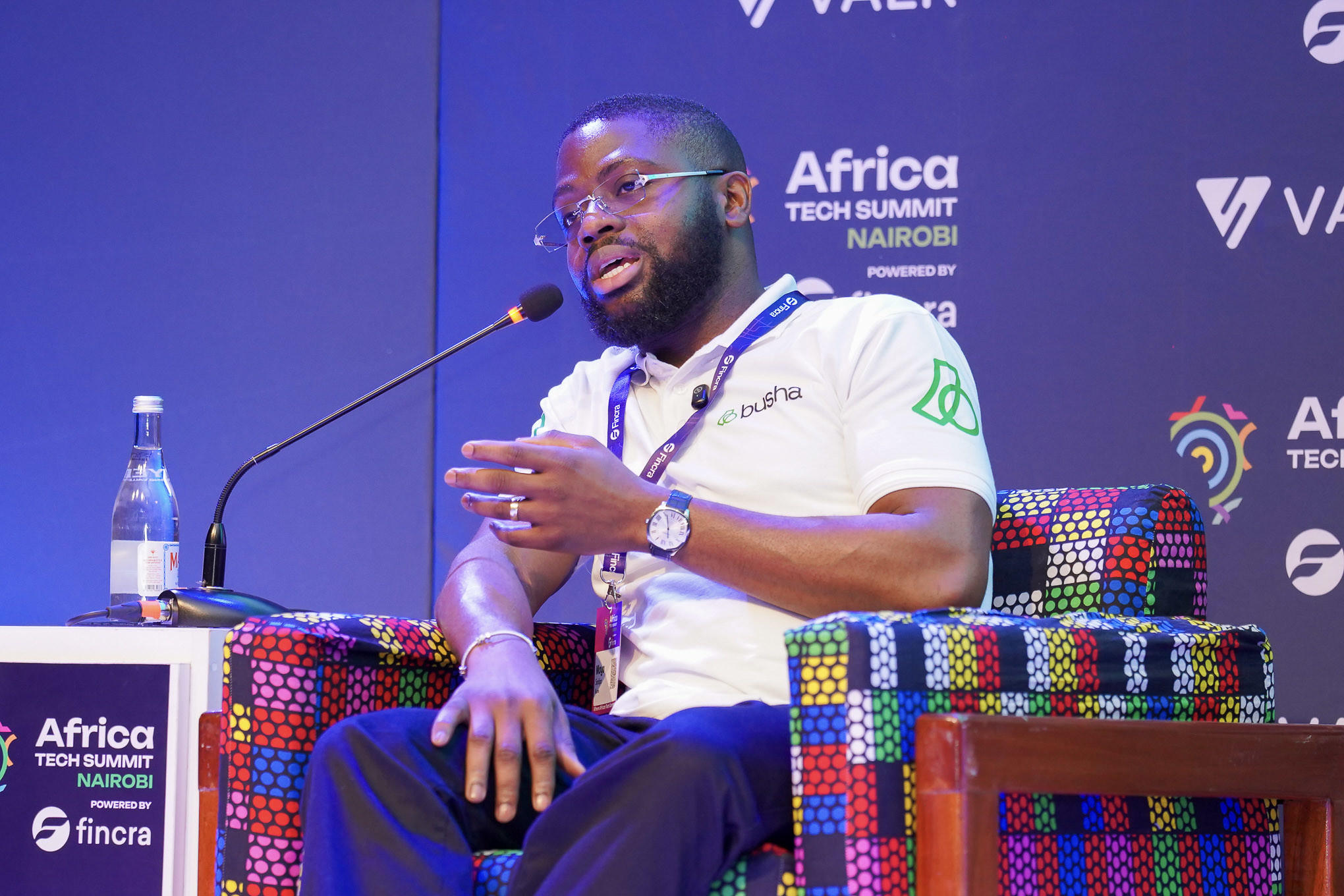Editor’s note: In this article, we’ve published the Introduction and Key Findings sections of our new report, “Nigerian Women in Tech” powered by the UK-Nigeria Tech Hub and released on March 31. Download the report for free here.
There is a gender disparity between men and women in the STEM field.
In the Nigerian Women in Tech Report powered by the UK-Nigeria Tech Hub, we examine the distribution and level of involvement of women in
Nigeria’s technology and STEM fields. The report looks at the gaps that exist in women participation, show challenges and highlight recommendations for improvement.

Key findings in the report include:
- More than 65% of the female STEM university students surveyed applied for those courses as a result of their passion and interests as against being pressured by their parents to do so or because it was the only available option.
- 59% of the survey respondents admit to facing challenges in their course of study, however, over 75% of the same respondents say that the challenges are not gender-related. Despite the challenges faced, 54% of them feel happy about studying the course.
- Majority of the founders surveyed – 55.6% said that the challenges they faced were gender-based while many of the developers surveyed didn’t feel this way. 83% of the latter felt that their challenges weren’t gender-based.
- The number and percentage of female developers in the tech companies surveyed are increasing with each passing year, which shows that there is a growing interest in women participation in the tech field.
Women are less likely than men to pursue STEM careers
According to data pooled by the UNESCO Institute for Statistics (UIS)’s Women In Science interactive tool, only less than 30% of women are researchers in the field of science globally.
Women have also been found to – less likely than men – pursue careers in STEM fields with only 7% of women choosing to study engineering, manufacturing and construction, compared to 22% of men globally. Of the students pursuing careers in Information, Communication and Technology (ICT) fields, 28% are women and 72% are men.
While the percentage of women studying STEM disciplines are low compared to men at the undergraduate level, research has shown that this percentage reduces drastically at postgraduate level with more women leaving academic pursuits to start a family.
The African Union (AU) through the Science Technology and Innovation (STI) initiatives are making efforts duly noted in the Consolidated Plan of Action (CPA), to encourage its members to spend 1% of their gross domestic product (GDP) on research and development to improve innovations in STEM. There is only 30% of women in the tech workforce in Sub-Saharan Africa and the gross underrepresentation of women in STEM fields.

Here’s why the gap exists
The existing gap is commonly linked to negative stereotypes and insufficiency of role models in the tech space, lowering girls’ performance and aspirations with respect to science and technology, according to our findings. It represents a major emerging issue for gender parity since STEM careers are forecasted to be some of the most sought-after in the context of the fourth industrial revolution.
In the Nigerian context with a thriving technology space amidst epileptic power supply, inadequate infrastructure and economic adversities, the gender disparity being faced globally is also present in the country at different levels. There are a lot of factors that contribute to the low level of women participation in STEM fields, ranging from poverty to stereotypes, to discrimination in the workplace.

Several initiatives are working to close the gap
Amidst all of these challenges, there are women in Nigeria who have risen above these barriers, women who are shattering glass ceilings and refusing to be boxed. Numerous initiatives (no less than 39, according to research conducted by TechCabal) have and are being set up to encourage female participation in the tech field. They are targeted at getting more girls and women into technology. They provide training opportunities and mentorship to young women across Nigeria.
An example of these initiatives is GirlsCodeNigeria, an initiative founded in 2015 by Omobolanle Osho, which has trained over 1,200 girls. In 2018, Abisoye Akinfolarin, founder of the Pearls Africa Foundation, another initiative aimed at training girl coders, was nominated as one of the top 10 finalists for the CNN Hero awards. Akinfolarin’s initiative has trained at least 400 girls since it launched in 2012. Government, organizational and individual funding of women- particularly in the tech industry appears to be growing.
Clearly, there is a future for an increasing number of women in the STEM industry.
Download the Nigerian Women in Tech Report for free here. The report celebrates women at all levels – founders, developers and students – who are actively working to close the gender gap and are opening doors for the other women after them. It features 21 female tech entrepreneurs and C-suite executives as well as 7 female developers.




















